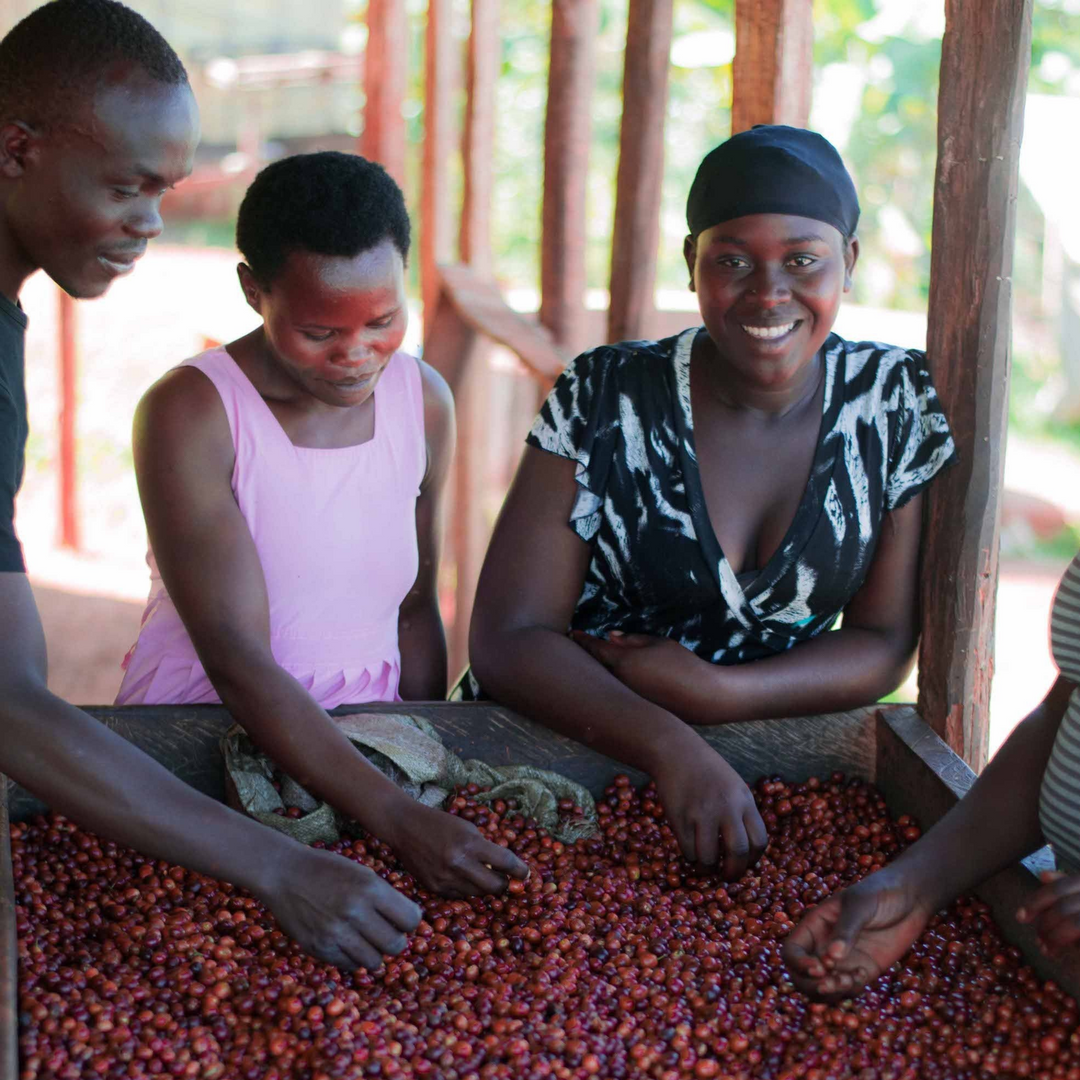ROAST

BEST ENJOYED -
ESPRESSO + AEROPRESS
---------------------------
-
Farm: Lot 20
-
Location: Nandi County
-
Altitude: 700-1500m
-
Process: Washed
-
Varietal: SL28, SL34
Cupping Notes
Bright and Vibrant, Cranberry, Apricot, Lemon
More Information
Lot 20 are a group that work with the coffee producers from Kericho and Bomet counties in the southern part of the Rift Valley in Kenya. They are passionate about cultivating, fair treatment of producers, and transparent trade. With auction being the main option of selling coffee in Kenya, sourcing transparently can be difficult on a good day, and near impossible on a bad one. Lot 20 however is trying something new: exporting their coffee themselves.
The Kipkelion and Fort Tenan regions boast some of the first coffee farms in Kenya. Despite this, Kericho county (and by extension Bomet) are not as known for producing coffee as central Kenya. This is partially due to the fact that central Kenya’s coffee gets sold in bulk by large exporters through the national auctioning system, and also because the farmers from Kericho and Bomet counties generally work within under-managed cooperatives that coffee dealers like to take advantage of for cheap prices.
Lot 20’s work in the region has been to try and organise Kericho and Bomet farmers into properly functioning entities that process and sell coffee on their own, without the assistance of middle-men or the auction system.
Alongside this, Lot 20 has established a nursery in their mill in Sossiot. Their goal is to donate 50,000 plants to the local community, in the hopes that this will create the opportunity for locals to grow and sell their own crop. By providing free seedlings Lot 20 are aiming to encourage a younger generation of coffee farmers who are more open to breaking old notions associated with coffee farming, hoping that they see it as a respectable and sustainable form of employment. Likewise, Lot 20’s presence in the community already generates jobs in areas adjacent to coffee farming, such as the many seasonal jobs in coffee picking that provide secondary incomes to local families.



















